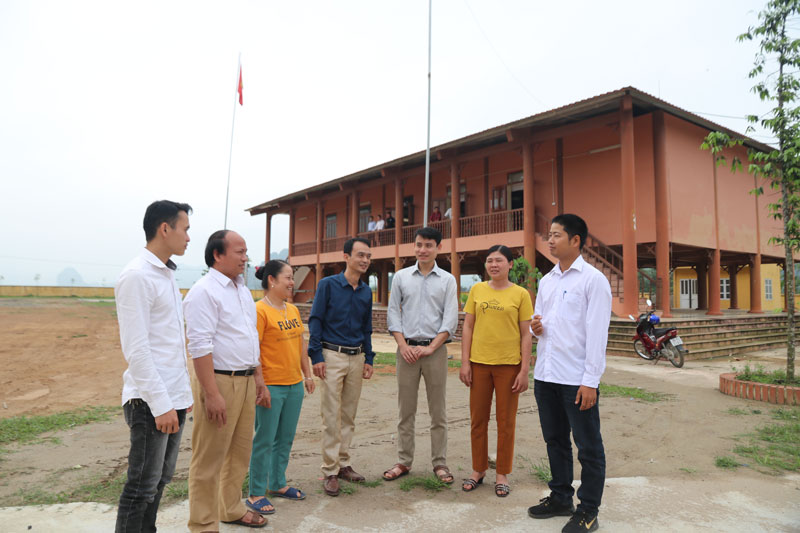


In communes and villages which benefit from Programme 135, transport and irrigation facilities, schools, community houses and other items have been constructed, and proved effective, thus stepping up the transfer of the economic structure of the locality.
In the last 5 years, thanks to investments from Programme 135, the district has had more than 30 km of roads built or repaired. It has also built, repaired or upgraded 73 works to ensure irrigation for nearly 1,000 hectares of rice, and built many rooms for preschools, primary schools, and secondary schools, and cultural houses with a total investment of nearly 97 billion VND.
 Thanks to investment for ethnic minority-inhabited
areas, Hop Kim commune’s cultural house was built as a community place for
local people.
Thanks to investment for ethnic minority-inhabited
areas, Hop Kim commune’s cultural house was built as a community place for
local people.
Works serving common interests of communes and villages, which are managed by the commune People's Committee, can use the programme’s fund for maintenance work. During 2014 - 2019, Kim Boi District People's Committee has received over 5.3 billion VND to maintain 263 projects of all types.
Many investment projects are valued at tens of billions of VND, including machines for production such as plowing machines, water pumps, pesticide spraying machines, electricity generators, animal feed machines; and funds to buy buffaloes and cows.
The projects supporting production development under the National Target Programme for Sustainable Poverty Reduction have contributed to economic restructuring towards commodity production and building agricultural, forestry and fishery production models, thus helping raise locals’ incomes and reduce poverty.
According to Nguyen Thanh Trung, head of the Ethnicity Division of Kim Boi district, thanks to investments in infrastructure, the Kim Boi is getting a facelift, especially in electrical, road, school and medical stations, and the material and spiritual lives of locals have been significantly improved, which reinforces the trust in the leadership of the Party and State among ethnic minority people in the locality./.